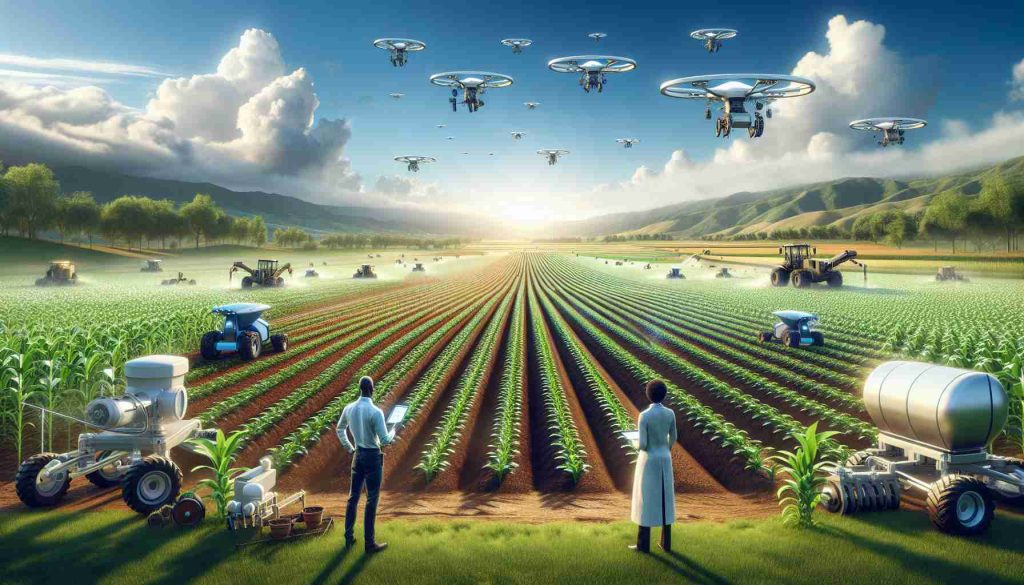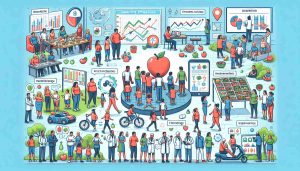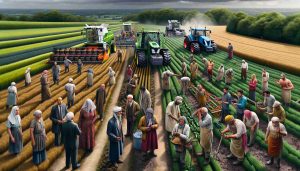Revolution in Agricultural Production
3 min read
Breaking barriers and setting new standards, a visionary farmer achieved unprecedented success in soybean cultivation this season. Alex Harrell’s remarkable dedication and expertise led to a groundbreaking yield of 218.2856 bushels per acre on his expansive farm in southern Georgia.
The astounding achievement signifies a significant advancement in agricultural production, showcasing the potential for innovation and growth in the farming industry. Harrell’s exceptional harvest not only surpassed the previous world record but also exceeded his own remarkable accomplishment from the previous year.
With a meticulous approach to farming techniques and a deep understanding of the land, Harrell has redefined the possibilities for soybean cultivation. His commitment to excellence and continuous improvement serves as an inspiration to fellow farmers and industry professionals alike.
The record-breaking yield not only underscores Harrell’s unparalleled skill and dedication but also highlights the boundless opportunities for sustainable farming practices. As the agricultural landscape continues to evolve, pioneers like Harrell pave the way for a future where high yields and environmental stewardship go hand in hand.
In conclusion, Alex Harrell’s exceptional performance in soybean production not only cements his status as a trailblazer in the field but also heralds a new era of innovation and productivity in agriculture. His extraordinary success serves as a testament to the transformative power of passion, knowledge, and sheer determination in shaping the future of farming.
Revolutionizing Agricultural Production: Uncovering New Frontiers
As the agricultural industry witnesses a transformation propelled by innovative practices and advancements, one crucial question arises: How can farmers adapt to revolutionize agricultural production sustainably while meeting the demands of a growing population? This query leads us to explore key challenges and controversies associated with this evolving landscape.
Key Questions:
1. What role does technology play in driving agricultural revolution?
2. How can farmers strike a balance between maximizing yields and preserving the environment?
3. What are the social and economic implications of revolutionizing agricultural production on a large scale?
Answers and Insights:
1. Technology, such as precision agriculture and agricultural drones, empowers farmers to make data-driven decisions, optimize resource usage, and enhance productivity.
2. Balancing high yields with environmental sustainability requires adopting practices like conservation agriculture, integrated pest management, and soil health management.
3. The shift towards revolutionizing agricultural production can have positive impacts on food security, rural development, and economic growth; however, challenges related to land use, resource management, and socio-economic disparities must be addressed.
Advantages:
1. Increased productivity and efficiency leading to enhanced food security.
2. Adoption of sustainable practices promoting environmental conservation.
3. Economic growth and innovation in the agricultural sector.
Disadvantages:
1. Implementation costs of advanced technologies may pose challenges for small-scale farmers.
2. Resistance to change and lack of access to resources hindering widespread adoption of new practices.
3. Potential environmental risks associated with intensive agricultural production practices.
In navigating this revolution, farmers, policymakers, and industry stakeholders must collaborate to address these challenges and harness the full potential of agricultural innovation for a sustainable future.
Explore further insights on agricultural revolution at Food and Agriculture Organization (FAO) for comprehensive resources and global perspectives on transforming agricultural production practices.






